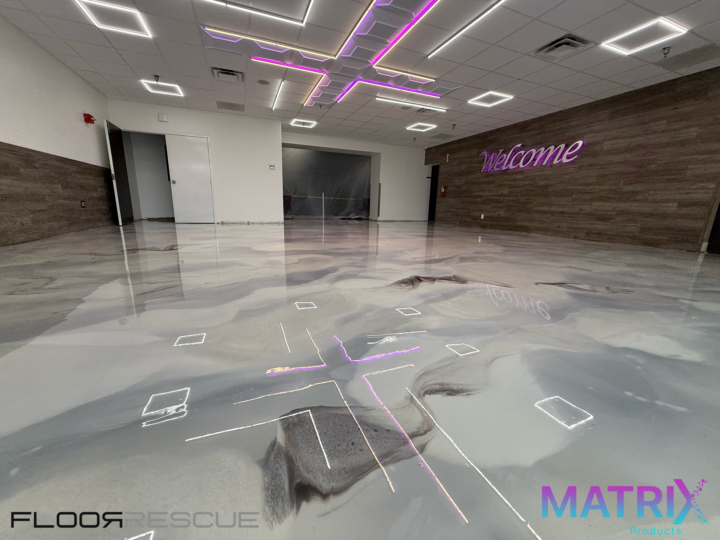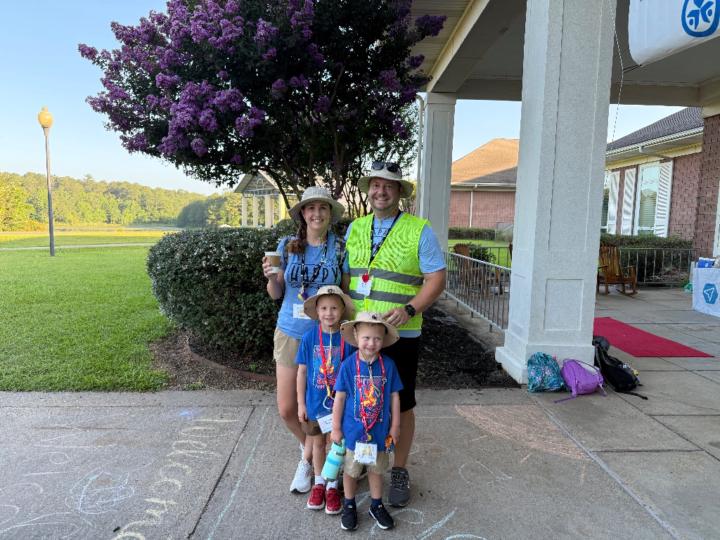Activity
Mon
Wed
Fri
Sun
Oct
Nov
Dec
Jan
Feb
Mar
Apr
May
Jun
Jul
Aug
Sep
What is this?
Less
More
Memberships
Concrete & Coatings School
397 members • Free
4 contributions to Concrete & Coatings School
How much experience you have with epoxy ?
📢 Hey everyone! Was just curious, since this stuff is all over the internet and people post finished results on Instagram and everywhere else, so it looks amazing but not too many talk online about what it takes to get to that finished product. Let's get to know each other a little , then we'll know what material to share and all that good stuff. Let's get this group going 💪 Make Epoxy Great Again 😁
Poll
7 members have voted

1 like • 23d
@Alvis Ciritis when I started I was on every job. But as I found good people I would train them one at a time until I got people that could run their own crews. All my people go to the same church as me. Two of them have been with me almost since I started. You have to train them well and put trust in them that they know what they are doing. That’s the running a business part. Must create a good process for training. Hiring people is hard and finding someone is hard. You can teach skills, you can’t teach character or integrity.
0 likes • 22d
@Alvis Ciritis I have had tons of jobs. I was a project controller over a billion dollar project 8 years ago. I used to run a retail store when I was 22 years old. Seen every type of test and application that is out there. This type of work is not needed for that. Now days are completely different. I just look for someone that has a will to work, show up on time, and an open mind to learn. I have trained people twice my age to almost half my age. This industry is not rocket science but it is an evolving one. The thing that got me bored in the different jobs I had is that it never changed. Once I knew everything, that was it. There is always something to learn, a new product, a new technology, or a new method. That’s what I love about concrete coating world.
Some Lessons & Takeaways from a Recent Church Floor Makeover
Project Highlights & Key Takeaways Light gray base created cloud effect in this pearl and off-white metallic combo. Solid pigments resist flow and can stick to the floor; remember to mix them into metallic or clear layers for better movement. After demoing tile, we patched with a slurry mix and then our pigmented MVB and finished with satin, high-wear urethane for durability. Key tip—highlight batches have about 20 minutes of pot life, so we ran 3 batches (12 kits = 36 gallons) for our 1,200 ft² install to keep things fresh and flowing. 1. Gray Base + White & Pearl Metallics = Layered Color Shift The light gray base isn’t just a neutral canvas—it bleeds through the pearl and white metallics to create unexpected hues and soft tonal shifts. This subtle interplay enhances depth and richness. 2. Solid Pigments Limit Fluidity Solids stick. When mixed directly into epoxy, they can weigh down the flow and freeze your design. To preserve dynamic movement, blend solids into clear or metallic epoxy layers—this encourages fluid dispersion and flow capability. 3. Tile Demo Needed Slurry Repair After tile removal, the floor had minor concrete damage. We repaired it with an epoxy slurry, ensuring a smooth and contiguous surface ready for decorative layering—a crucial step for both aesthetics and adhesion. 4. Durable Satin Urethane Finish for Foot Traffic Topped the project with a satin-textured, high-wear urethane. This clear topcoat delivers exceptional abrasion resistance, UV stability, and longevity, making it ideal for high-traffic church environments 5. Pot Life Awareness with Highlight Colors When working with metallic highlight mixes—especially over large areas like your 1,200 ft² project—time is tight. Pot life is often 20 minutes or less. We managed this by working in three batches of four kits each (2 pearl, 1 white, ½ white + highlights), totaling 12 kits (36 gallons). This kept each mix fresh and fluid across the surface. Products used: MatriX [email protected] for pricing & ordering

Client handling
Yesterday was doing an estimate and everything is going pretty smooth, I tell him all the options, he asks questions and I answer ,blah blah blah all the small talk that I hate 🤦🏻♂️ but then he was like, so what sets you apart from others?...for some reason I didn't expect that , not that I just lost him right away, but that made me curious. What would you say to this? I couldn't really come up with anything fantastic, other than attention to details and that kinda stuff, but for the next time I'd probably like to be prepared a little better 😁

1 like • Aug 24
@Alvis Ciritis when I mean complete custom means that I create custom flake colors for customers, custom looks, we do custom logos and designs. We do flaking system, stains, metallics, solid epoxy, resurfacing etc… Be an expert at one thing at a time then move to the next. No we are not a franchise. We also don’t just use one brand of product or material. We are able to get what the customer needs for it to last but also get the look they want. That is custom. Franchises normally use a one stop shop material. No college teaches coatings. The thing that helps me though with my background is that we do take a year of classes just on concrete. Also, knowing how to read specifications, drawings, ASTM standards, and other things in the commercial and industrial side that you would not just learn online.
0 likes • Aug 24
@Alvis Ciritis don’t be sorry at all. Happy to help if I can. People get what they pay for. If you are a custom company they know they are paying for custom work. If you just give them 6 choices then you can probably get a few to just pick. I don’t start with custom. Every customer is different. Every job is different. All concrete is different. This is where you learn more as you go. It’s like buying a house. You want a custom home or a cookie cutter home. One cost more and one less. I see myself as the architect, the engineer, and the project manager. You have to know all three to get higher end clients. I am about 50/50 resident to commercial. Just different times of the year are more one than the other.
Welcome to the Concrete & Coatings School — Floor Rescue's Beyond Limits
🏆 You’ve found the #1 online Concrete & Coatings School — designed to help installers and entrepreneurs gain real knowledge, build confidence & profits in business, and master the concrete & epoxy flooring trade. I’m Jeremy Redig, founder of FloorRescue and the Beyond Limits movement. I started with just $391, no training, and no mentorship — and learned most lessons the hard way. Today, I’m sharing the experience I've gained through systems, installs, and coaching I wish I had years ago. 👊 What You Get as a Free Member - ✅ Free Metallic Epoxy Course (Classroom tab) - ✅ Weekly Live Coaching Calls (sample access) - ✅ Behind-the-Scenes with Jeremy (mini-courses) - ✅ Exclusive Training Tools (checklists, guides) - ✅ A Driven Community (surround yourself with A+ installers) - ✅ Special Pricing & Upgrades (discounts on premium courses & trainings) 🚀 Upgrade to the Inner Circle ($97/mo) For those who want coaching and accountability at the next level, the Beyond Limits Inner Circle includes: - Weekly Coaching Calls → Live coaching + Q&A - Full Call Replays → Inside the Inner Circle course (Classroom tab) - Exclusive Resources → Pricing sheets, PDFs, SOPs, templates - Private Q&A + Wins Categories (🔒) for direct support - Accountability & Growth with other serious installers 👉 If you click on an Inner Circle section and see it locked, that’s normal — it’s reserved for members. Message me to join and unlock access. 📅 Where to Find Everything - Courses → Classroom tab (free + Inner Circle) - Coaching Calls → Calendar tab (live + locked events) - Community → Post wins, struggles, and questions in the right category 💡 Your Next Step 1. Introduce yourself in Community Chat & Wins. 2. Dive into the free Metallic Epoxy course. 3. If you’re ready for more, join the Inner Circle to unlock private coaching + resources. 🔥 This is your community. The more you engage, the more you’ll grow. – Jeremy Redig Floor Rescue / Install Beyond Limits
2 likes • Aug 23
Hey everyone! I am in Baton Rouge, LA. I have a degree in construction management. Spent 4 years at University of Arkansas at Little Rock which is where I am from. Then spent two years at the University of West Florida where I finished my degree. Been in sales pretty much my whole life. Worked industrial construction in Baton Rouge for 5 years as a project controller. 1 year in commercial construction as a project manager and 4 years in residential construction. Started my coating business in May 2022. We have grown into two crews now and constantly growing. I study a lot about all the coating materials and understanding their data sheets. My background in construction has helped me with specs on commercial flooring builds. I am trying to understand more of the polishing side of things and the do’s and don’ts of the industry. I am always willing to learn and grow my knowledge from experience and reputable people that have been around a while. I know that coatings are like technology and things are always changing. My company does everything from flaking systems, stains, resurfacing, epoxy systems, and polishing. So I hope that this group will grow my knowledge even more so that customers can get what they not only need but what they want. I am an information sponge and I like to educate my customers correctly so they also make the right decisions for their projects. Thank you, Micah
1-4 of 4
@micah-milligan-5077
Have over 10 years experience in industrial, commercial, and residential construction. Degree in Construction Management. Concrete Coatings 3 years
Active 18d ago
Joined Aug 22, 2025
Powered by



